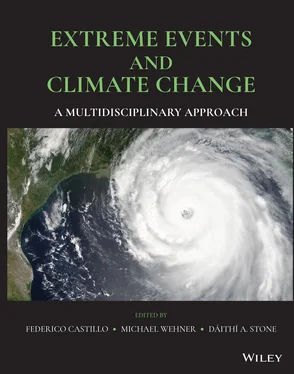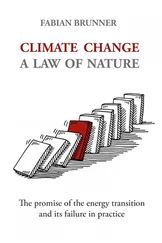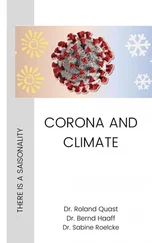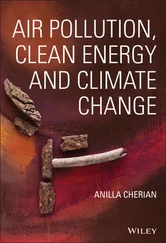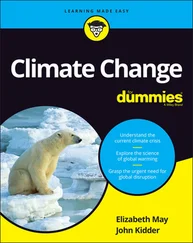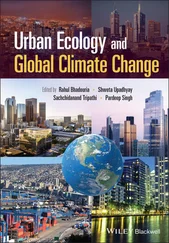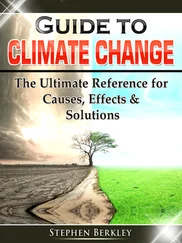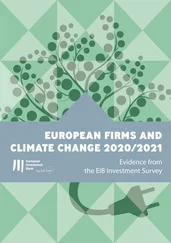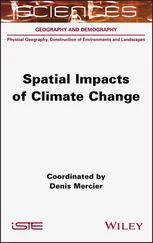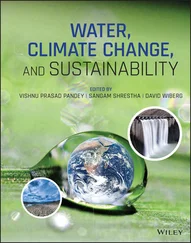1 ...7 8 9 11 12 13 ...16 Given the diversity in what is required of synthesis assessments, this chapter has refrained from specific recommendations that might be relevant only for a very particular class of assessment. Instead, there are some broad general guidelines that should considered in the future. The urgent priority is to promote the operation of comprehensive monitoring programs: measurements for a given date are not something that can be deferred to later. Both monitoring and the development of mechanistic understanding are standard components of disciplinary analysis, and so there may be more important disciplinary motivations for them. But it is worth reminding ourselves that syntheses cannot be performed without these pillars. In addition, there have been two other themes running through this chapter that are specific to synthesis. The first theme is the usefulness of a clearly delineated remit. The focus on extreme weather here might be considered arbitrary, but a synthesis of climate change impacts that are mediated through extreme weather fits into current decision‐making systems in a way that might make the synthesis more useful. The second theme is the need for further development of synthesis methods (Kowarsch & Jabbour, 2017). Possibly the most important recommendation though is to make synthesis assessments into evolving monitoring products. Recent global, cross‐sectoral synthesis assessments have each been a snapshot of a period in time and have not been followed up with periodic operational updates. If we are to be able to document our progress in limiting or avoiding “dangerous” interference, we need continual updates documenting the evolving nature of the impacts from that interference.
1 Cramer, W., Yohe, G. W., Auffhammer, M., Huggel, C., Molau, U., da Silva Dias, M.A.F., Solow, A., Stone, D. A., & Tibig, L. (2014). Detection and attribution of observed impacts. In C. B. Field, V. R. Barros, J. Dokken, K. J. Mach, M. D. Mastrandrea, T. E. Bilir, M. Chatterjee, K. L. Ebi, Y. O. Estrada, R. C. Genova, B. Girma, E. S. Kissel, A. N. Levy, S. MacCracken, P. R. Mastrandrea, & L. L. White (Eds.), Climate change 2014: Impacts, adaptation, and vulnerability. Part A: Global and sectoral aspects. Contribution of Working Group II to the Fifth Assessment Report of the Intergovernmental Panel on Climate Change (pp. 979–1037). Cambridge University Press.
2 Gall, M., Borden, K. A., & Cutter, S. L. (2009). When do losses count? Six fallacies of natural hazards loss data. Bulletin of the American Meteorological Society, 90, 799–809. doi:10.1175/2008BAMS2721.1
3 Hansen, G., & Cramer, W. (2015). Global distribution of observed climate change impacts. Nature Climate Change, 5, 182–185.
4 Hansen, G., & Stone, D. (2016). Assessing the observed impact of anthropogenic climate change. Nature Climate Change, 6, 532–537. doi:10.1038/NCLIMATE2896
5 Hegerl, G. C., Hoegh‐Guldberg, O., Casassa, G., Hoerling, M. P., Kovats, R. S., Parmesan, C., Pierce, D. W., & Stott P. A. (2010). Good practice guidance paper on detection and attribution related to anthropogenic climate change. In T. F. Stocker, C. B. Field, D. Qin, V. Barros, G.‐K. Plattner, M. Tignor, P. M. Midgley, & K. L. Ebi (Eds.), Meeting report of the Intergovernmental Panel on Climate Change Expert Meeting on Detection and Attribution of Anthropogenic Climate Change. IPCC Working Group I Technical Support Unit, University of Bern.
6 Hockey, P.A.R., Sirami, C., Ridley, A. R., Midgley, G. F., & Babiker, H. A. (2011). Interrogating recent range changes in South African birds: Confounding signals from land use and climate change present a challenge for attribution. Diversity and Distribution, 17, 254–261.
7 Hoegh‐Guldberg, O., Jacob, D., Taylor, M., Bindi, M., Brown, S., Camilloni, I., Diedhiou, A., Djalante, R., Ebi, K. L., Engelbrecht, F., Guiot, J., Hijioka, Y., Mehrotra, S., Payne, A., Seneviratne, S. I., Thomas, A., Warren, R., & Zhou, G. (2018). Impacts of 1.5°C global warming on natural and human systems. In V. Masson‐Delmotte, P. Zhai, H. O. Pörtner, D. Roberts, J. Skea, P. R. Shukla, A. Pirani, W. Moufouma‐Okia, C. Péan, R. Pidcock, S. Connors, J.B.R. Matthews, Y. Chen, X. Zhou, M. I. Gomis, E. Lonnoy, T. Maycock, M. Tignor, & T. Waterfield (Eds.), Global warming of 1.5°C. An IPCC Special Report on the impacts of global warming of 1.5° C above pre‐industrial levels and related global greenhouse gas emission pathways, in the context of strengthening the global response to the threat of climate change, sustainable development, and efforts to eradicate poverty. https://www.ipcc.ch/sr15/chapter/spm/
8 Kowarsch, M., & Jabbour, J. (2017). Solution‐oriented global environmental assessments: Opportunities and challenges. Environmental Science and Policy, 77, 187–192. doi:10.1016/j.envsci.2017.08.013
9 Manson, S., Schroeder, J., Van Riper, D., & Ruggles, S. (2017). IPUMS national historical geographic information system. Version 12.0. Technical report. University of Minnesota.
10 Mastrandrea, M. D., Field, C. B., Stocker, T. F., Edenhofer, O., Ebi, K. L., Frame, D. J., Held, H., Kriegler, E., Mach, K. J., Matschoss, P. R., Plattner, G.‐K., Yohe, G. W., & Zwiers, F. W. (2010). Guidance note for lead authors of the IPCC Fifth Assessment Report on consistent treatment of uncertainties. Intergovernmental Panel on Climate Change (IPCC). http://www.ipcc.ch
11 National Academies of Sciences, Engineering, and Medicine. (2016). Attribution of extreme weather events in the context of climate change. The National Academies Press. doi:10.17226/21852
12 Oppenheimer, M., Campos, M., Warren, R., Birkmann, J., Luber, G., O’Neill, B., Takahashi, K., and et alii. (2014). Emergent risks and key vulnerabilities. In In C. B. Field, V. R. Barros, J. Dokken, K. J. Mach, M. D. Mastrandrea, T. E. Bilir, M. Chatterjee, K. L. Ebi, Y. O. Estrada, R. C. Genova, B. Girma, E. S. Kissel, A. N. Levy, S. MacCracken, P. R. Mastrandrea, & L. L. White (Eds.), Climate change 2014: Impacts, adaptation, and vulnerability. Part A: Global and sectoral aspects. Contribution of Working Group II to the Fifth Assessment Report of the Intergovernmental Panel on Climate Change (pp. 1039–1099). Cambridge University Press.
13 Pais, A. (1991). Niels Bohr’s times: In physics, philosophy, and polity. Clarendon Press.
14 Parmesan, C., Duarte, C., Poloczanska, E., Richardson, A. J., & Singer, M. C. (2011). Overstretching attribution. Nature Climate Change, 1, 2–4.
15 Rosenzweig, C., Casassa, G., Karoly, D. J., Imeson, A., Liu, C., Menzel, A., Rawlins, S., Root, T. L., Seguin, B., Tryjanowski, P., & Hanson, C. E. (2007). Assessment of observed changes and responses in natural and managed systems. In M. L. Parry, O. F. Canziani, J. P. Palutikof, P. J. van der Linden, & C. E. Hanson (Eds.), Climate change 2007: Impacts, adaptation and vulnerability. Contribution of Working Group II to the Fourth Assessment Report of the Intergovernmental Panel on Climate Change (pp. 79–131). Cambridge University Press.
16 Rosenzweig, C., Karoly, D., Vicarelli, M., Neofotis, P., Wu, Q., Casassa, G., Menzel, A., Root, T. L., Estrella, N., Seguin, B., Tryjanowski, P., Liu, C., Rawlins, S., & Imeson, A. (2008). Attributing physical and biological impacts to anthropogenic climate change. Nature, 453, 353–357.
17 Rosenzweig, C., & Neofotis, P. G. (Eds.). (2003). IPCC Workshop report on the detection and attribution of the effects of climate change. NASA/Goddard Institute for Space Studies.
18 Savo, V., Lepofsky, D., Benner, J. P., Kohfeld, K. E., Bailey, J., & Lertzman, K. (2016). Observations of climate change among subsistence‐oriented communities around the world. Nature Climate Change, 6, 462–473, 2016. doi: 10.1038/NCLIMATE2958
19 Settele, J., Scholes, R., Betts, R. A., Bunn, S., Leadley, P., Nepstad, D., Overpeck, J. T., Taboada, M. A., Fischlin, A., Moreno, J. M., Root, T., Musche, M., & Winter, M. (2014). Terrestrial and inland water systems. In C. B. Field, V. R. Barros, J. Dokken, K. J. Mach, M. D. Mastrandrea, T. E. Bilir, M. Chatterjee, K. L. Ebi, Y. O. Estrada, R. C. Genova, B. Girma, E. S. Kissel, A. N. Levy, S. MacCracken, P. R. Mastrandrea, & L. L. White (Eds.), Climate change 2014: Impacts, adaptation, and vulnerability. Part A: Global and sectoral aspects. Contribution of Working Group II to the Fifth Assessment Report of the Intergovernmental Panel on Climate Change (pp. 271–359). Cambridge University Press.
Читать дальше
